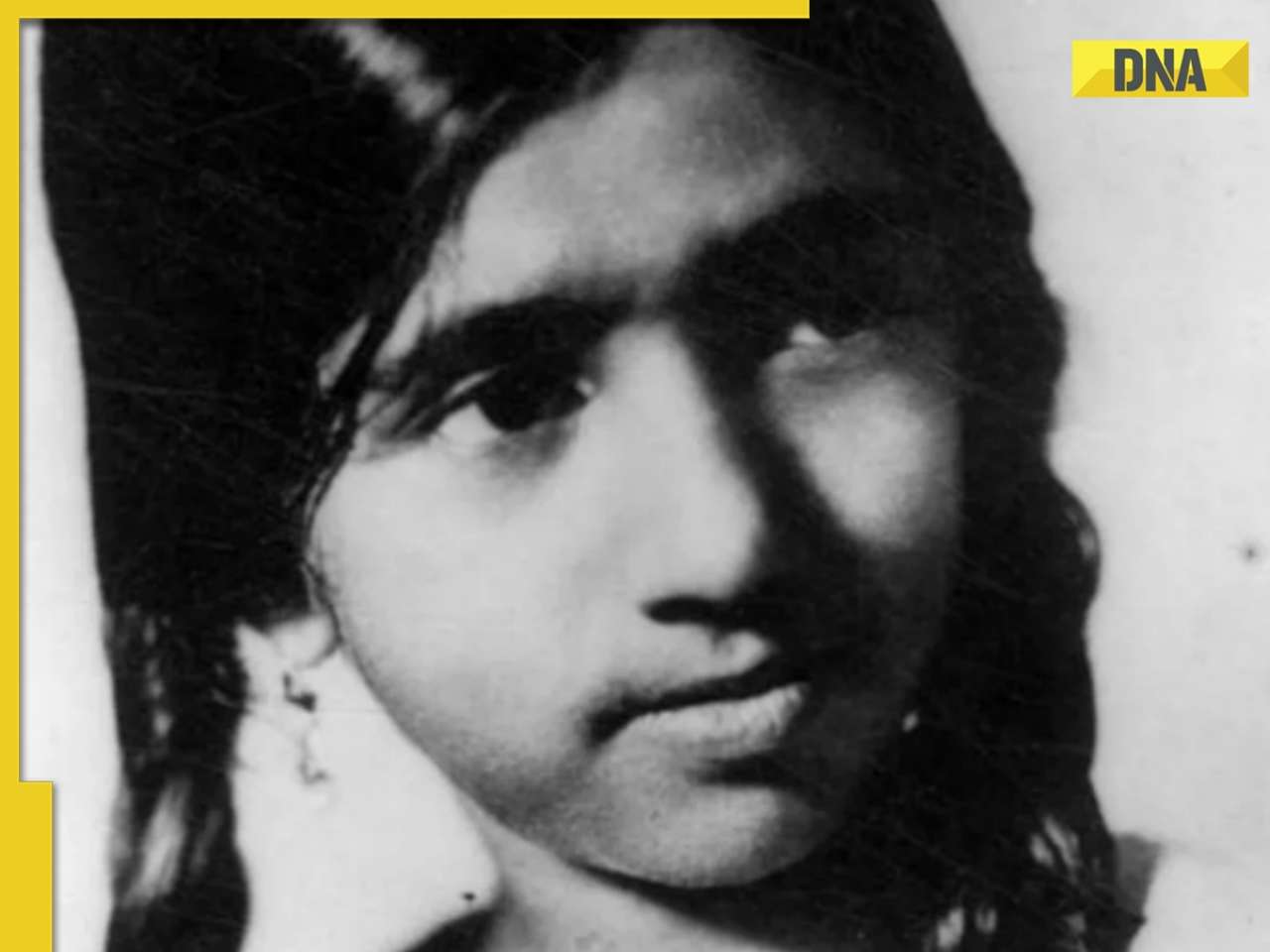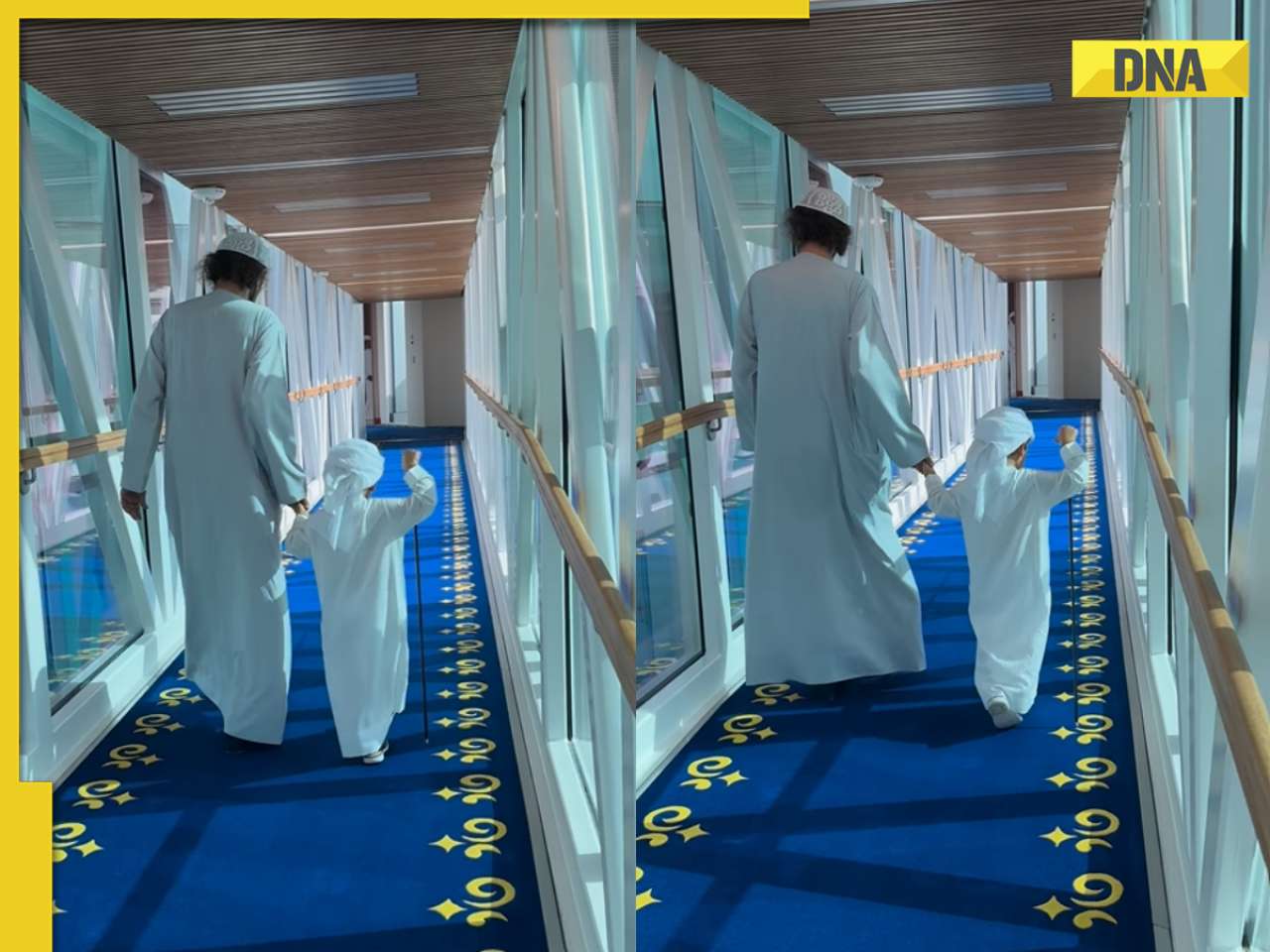As the new citizens adjust to life in their new home, the next step is helping the young refugees to adapt.
In December 2015, Canada welcomed the first arrivals of 25,000 Syrian refugees it will be opening its doors to. As the new citizens adjust to life in their new home, the next step is helping the young refugees to adapt to their new environment.
Anna Kirova, a professor of elementary education at the University of Alberta, spoke to dna and shared her view on the challenges and resources needed in the country to integrate the youngest new citizens. With the new inflow of child refugees, there are many hurdles that need to be crossed for successful integration. Kirova says support in the early years actually makes a difference in childrens' lives as "they develop much healthier identities as good citizens".
For any child, Kirova says the transition from home to school life can be challenging, but it can create additional stress for child refugees who come from traumatic experiences if they do not have enough support. "Children who come from war zones, who come from refugee camps, even though they are in really harsh dangerous circumstances, they are usually with their parents," she said, "So the separation from their parents to an environment in which they don’t speak the language and everything is foreign to them can create additional stress for them."
Child refugees need to learn to be with other children and adults out of their home and need a place where there is order and resources available to them. "It is important she says for young children to see their parents welcome in the school system. To see that their parents are part of the school, that their parents have not 'abandoned' them in that new environment," she said.
Another issue is the lack of preparation in a country where more that 80% of the teachers are white middle-class women, who may not know how to deal with children who come from ethnic racial groups. "A recent survey in one of the city's shows that 1 in 3 teachers feel that they are not prepared to work with refugee children," Kirova revealed. "For children who have never encountered people from ethinic, racial, linguistic and culture and religious groups this can create additional stress," she said.
Kirova believes it is important for the school system to have intercultural knowledge and skills to successfully integrate children of all ages. When teachers who don't have the right skills, Kirova says, it is easy for them to look at the "deficits" of the child and the language of deficit creates the wrong attitude in school and in the general population.
"The fact that they come from different circumstances doesn’t mean that their lacking skills," she said."In fact, they have skills that many of the children in the mainstream society don’t have because they haven’t had these experiences that they have to build to take care of themselves."
Cultural brokers
As it is impossible for teachers to have knowledge of individual cultures they need to actively seek communities. Kirova says there are several successful programmes that include "cultural brokers" who are available to facilitate the transition of new children to school.
These "cultural brokers", Kirova says, have the special cultural knowledge and linguistic knowledge that individual teachers cannot have because there are so many different cultures represented in each and every classroom in Canada. "The school system has to utilise the resources that already exist in the community be it the older people that have been in Canada for a longer period of time that have adjusted to the Canadian culture. They can serve as cultural brokers to the new families, " she said.
These pre-migration experiences are vital for every school system to understand to help children heal from traumatic experiences. In this way, children, are exposed simultaneously to their own culture and to the majority culture. "They are ultimately the support that the children need and the families need in order to learn the education system in Canada and also the system to learn from the families how to best integrate with these children."
It is also important for child refugees to maintain their first language in order to maintain a connection that is important to their families and communities. "This language is so important because it fosters the identity, it develops healthy relationships with both cultures, the home culture and mainstreams cultures," she believes.
Learning what they know
Through the programmes, Kirova says, they have found it is very healthy to allow children to show their knowledge of the world with objects and materials their familiar with. "With these materials they show us what they know and what they can do and these are the ways in which we can identify the strengths that children have and that has been extremely successful."
While such initiatives have shown success in integrating children, the problem, of course, is that they are expensive to maintain. "The most important question is what citizens we will have in a country?" Kirova asks. Adding, "We need to have people who are healthy, who have healthy relationships in their communities and be productive and feel like they belong to both communities."
This requires resources and effort on a large scale. "Children live in communities families and in schools and so we have to really combine our efforts to have healthy children, its not just education only that’s important that responsible it’s a joint effort."
![submenu-img]() This singer helped BCCI when it had no money to award 1983 World Cup-winning Indian cricket team, raised 20 lakh by...
This singer helped BCCI when it had no money to award 1983 World Cup-winning Indian cricket team, raised 20 lakh by...![submenu-img]() Virat Kohli’s new haircut ahead of RCB vs CSK IPL 2024 showdown sets internet on fire, see here
Virat Kohli’s new haircut ahead of RCB vs CSK IPL 2024 showdown sets internet on fire, see here![submenu-img]() BCCI bans Mumbai Indians skipper Hardik Pandya, slaps INR 30 lakh fine for....
BCCI bans Mumbai Indians skipper Hardik Pandya, slaps INR 30 lakh fine for....![submenu-img]() 'Justice must prevail': Former PM HD Deve Gowda breaks silence in Prajwal Revanna case
'Justice must prevail': Former PM HD Deve Gowda breaks silence in Prajwal Revanna case![submenu-img]() India urges students in Kyrgyzstan to stay indoors amid violent protests in Bishkek
India urges students in Kyrgyzstan to stay indoors amid violent protests in Bishkek![submenu-img]() Meet IIT graduates, three friends who were featured in Forbes 30 Under 30 Asia list, built AI startup, now…
Meet IIT graduates, three friends who were featured in Forbes 30 Under 30 Asia list, built AI startup, now…![submenu-img]() Meet woman who cracked UPSC in fourth attempt to become IAS officer, secured AIR...
Meet woman who cracked UPSC in fourth attempt to become IAS officer, secured AIR...![submenu-img]() Meet IIT JEE 2024 all-India girls topper who scored 100 percentile; her rank is…
Meet IIT JEE 2024 all-India girls topper who scored 100 percentile; her rank is…![submenu-img]() Meet PhD wife of IIT graduate hired at Rs 100 crore salary package, was fired within a year, he is now…
Meet PhD wife of IIT graduate hired at Rs 100 crore salary package, was fired within a year, he is now…![submenu-img]() Meet woman not from IIT, IIM or NIT, cracked UPSC exam in first attempt with AIR...
Meet woman not from IIT, IIM or NIT, cracked UPSC exam in first attempt with AIR...![submenu-img]() DNA Verified: Is CAA an anti-Muslim law? Centre terms news report as 'misleading'
DNA Verified: Is CAA an anti-Muslim law? Centre terms news report as 'misleading'![submenu-img]() DNA Verified: Lok Sabha Elections 2024 to be held on April 19? Know truth behind viral message
DNA Verified: Lok Sabha Elections 2024 to be held on April 19? Know truth behind viral message![submenu-img]() DNA Verified: Modi govt giving students free laptops under 'One Student One Laptop' scheme? Know truth here
DNA Verified: Modi govt giving students free laptops under 'One Student One Laptop' scheme? Know truth here![submenu-img]() DNA Verified: Shah Rukh Khan denies reports of his role in release of India's naval officers from Qatar
DNA Verified: Shah Rukh Khan denies reports of his role in release of India's naval officers from Qatar![submenu-img]() DNA Verified: Is govt providing Rs 1.6 lakh benefit to girls under PM Ladli Laxmi Yojana? Know truth
DNA Verified: Is govt providing Rs 1.6 lakh benefit to girls under PM Ladli Laxmi Yojana? Know truth![submenu-img]() Kiara Advani stuns in Prabal Gurung thigh-high slit gown for her Cannes debut, poses by the French Riviera
Kiara Advani stuns in Prabal Gurung thigh-high slit gown for her Cannes debut, poses by the French Riviera![submenu-img]() Heeramandi star Taha Shah Badussha makes dashing debut at Cannes Film Festival, fans call him ‘international crush’
Heeramandi star Taha Shah Badussha makes dashing debut at Cannes Film Festival, fans call him ‘international crush’![submenu-img]() Streaming This Week: Madgaon Express, Zara Hatke Zara Bachke, Bridgerton season 3, latest OTT releases to binge-watch
Streaming This Week: Madgaon Express, Zara Hatke Zara Bachke, Bridgerton season 3, latest OTT releases to binge-watch![submenu-img]() Sunanda Sharma exudes royalty as she debuts at Cannes Film Festival in anarkali, calls it ‘Punjabi community's victory’
Sunanda Sharma exudes royalty as she debuts at Cannes Film Festival in anarkali, calls it ‘Punjabi community's victory’![submenu-img]() Aishwarya Rai walks Cannes red carpet in bizarre gown made of confetti, fans say 'is this the Met Gala'
Aishwarya Rai walks Cannes red carpet in bizarre gown made of confetti, fans say 'is this the Met Gala'![submenu-img]() Haryana Political Crisis: Will 3 independent MLAs support withdrawal impact the present Nayab Saini led-BJP government?
Haryana Political Crisis: Will 3 independent MLAs support withdrawal impact the present Nayab Saini led-BJP government?![submenu-img]() DNA Explainer: Why Harvey Weinstein's rape conviction was overturned, will beleaguered Hollywood mogul get out of jail?
DNA Explainer: Why Harvey Weinstein's rape conviction was overturned, will beleaguered Hollywood mogul get out of jail?![submenu-img]() What is inheritance tax?
What is inheritance tax?![submenu-img]() DNA Explainer: What is cloud seeding which is blamed for wreaking havoc in Dubai?
DNA Explainer: What is cloud seeding which is blamed for wreaking havoc in Dubai?![submenu-img]() DNA Explainer: What is Israel's Arrow-3 defence system used to intercept Iran's missile attack?
DNA Explainer: What is Israel's Arrow-3 defence system used to intercept Iran's missile attack?![submenu-img]() This singer helped BCCI when it had no money to award 1983 World Cup-winning Indian cricket team, raised 20 lakh by...
This singer helped BCCI when it had no money to award 1983 World Cup-winning Indian cricket team, raised 20 lakh by...![submenu-img]() This film had 3 superstars, was unofficial remake of Hollywood classic, was box office flop, later became hit on...
This film had 3 superstars, was unofficial remake of Hollywood classic, was box office flop, later became hit on...![submenu-img]() Meet Nancy Tyagi, Indian influencer who wore self-stitched gown weighing over 20 kg to Cannes red carpet
Meet Nancy Tyagi, Indian influencer who wore self-stitched gown weighing over 20 kg to Cannes red carpet![submenu-img]() Telugu actor Chandrakanth found dead days after rumoured girlfriend Pavithra Jayaram's death in car accident
Telugu actor Chandrakanth found dead days after rumoured girlfriend Pavithra Jayaram's death in car accident![submenu-img]() Meet superstar who faced casting couch at young age, worked in B-grade films, was once highest-paid actress, now..
Meet superstar who faced casting couch at young age, worked in B-grade films, was once highest-paid actress, now..![submenu-img]() Viral video: Flood-rescued dog comforts stranded pooch with heartfelt hug, internet hearts it
Viral video: Flood-rescued dog comforts stranded pooch with heartfelt hug, internet hearts it![submenu-img]() Dubai ruler captured walking hand-in-hand with grandson in viral video, internet can't help but go aww
Dubai ruler captured walking hand-in-hand with grandson in viral video, internet can't help but go aww![submenu-img]() IPL 2024: Virat Kohli drops massive hint on MS Dhoni’s retirement plan ahead of RCB vs CSK clash
IPL 2024: Virat Kohli drops massive hint on MS Dhoni’s retirement plan ahead of RCB vs CSK clash![submenu-img]() Do you know which God Parsis worship? Find out here
Do you know which God Parsis worship? Find out here![submenu-img]() This white marble structure in Agra, competing with Taj Mahal, took 104 years to complete
This white marble structure in Agra, competing with Taj Mahal, took 104 years to complete








































)
















)
)
)
)
)
)